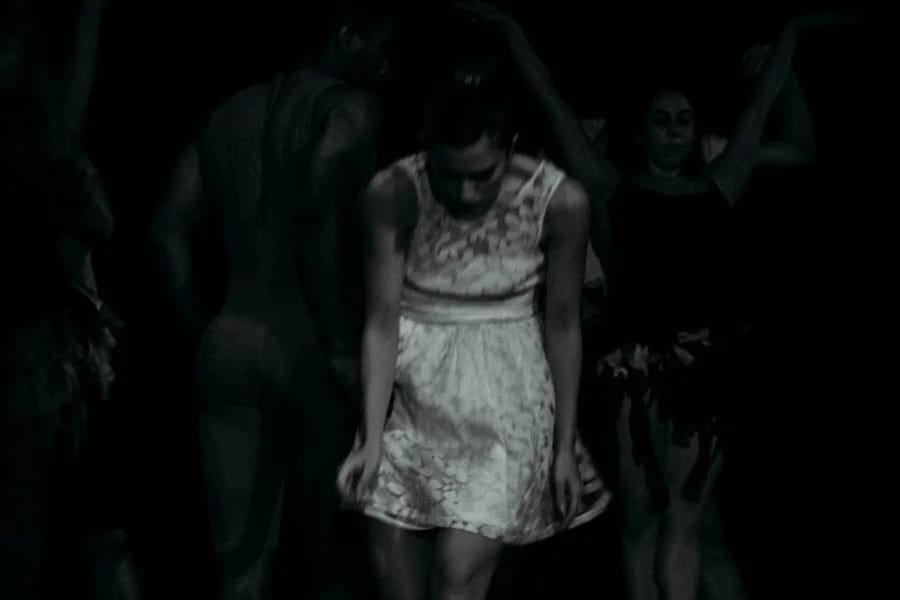
articles / Pop Culture
Homelessness Emerges ‘From Shadows’

Choreographer Marika Brussel‘s work From Shadows tells a story of homelessness that springs from her experience growing up, although that wasn’t where the work originally began. She says she had wanted to make a dance based on African author Amos Tutuola’s novel My Life in the Bush of Ghosts, interested in the intersection of people and ghosts in a forest near a village. But she didn’t feel she wanted to take on a story from a culture so removed from her own. After a friend’s suggestion, she looked to a subject that felt much closer, and ultimately led to a re-working of her own story.
There’s more information about the performances at Marika Brussel‘s website.
“She said, ‘Well what in your life resonates in a similar way?’ And I thought about this homeless man on my block who, at the time, was in a wheelchair and was sort of melting into the ground. And I thought, well, he’s like a ghost. He’s not really alive, and he’s not dead, and people just walk by.” But even then, it hadn’t occurred to her to associate that man with her father. “I was writing a grant, and somebody said, ‘Well, why are you doing this story?’ And I said, ‘Oh, well, my dad was homeless.’ Like very offhand. And then I thought, ‘Oh yeah, my dad was homeless. This was really about that.’ And once I realized that, it just took off.” Her father, who was an artist, was a heroin addict – he managed to get clean for the last twenty years of his life – but Brussel’s experience of losing him is dramatized. “It’s not exactly my story, but it has a lot of it in it. It’s about a young girl, and in the very beginning, there’s a ten year old girl (who is playing essentially me) and she’s happy with her family, and then a character who plays addiction pulls him away, out of the family. And then it goes to ten years later, where the girl is a young adult, and goes to look for her father in a city where there are homeless people.” She says she doesn’t have the answers, but wants to contribute to the conversation, and to help people stop ignoring the problem. “I hope that it starts a dialogue with people who haven’t necessarily been willing to have that dialogue. Some people feel helpless, and other people just feel angry and frustrated. And I’m hoping that if we can start to talk about it and have some compassion, some more compassion, that the conversation can be more open-minded, and really look for solutions.”






